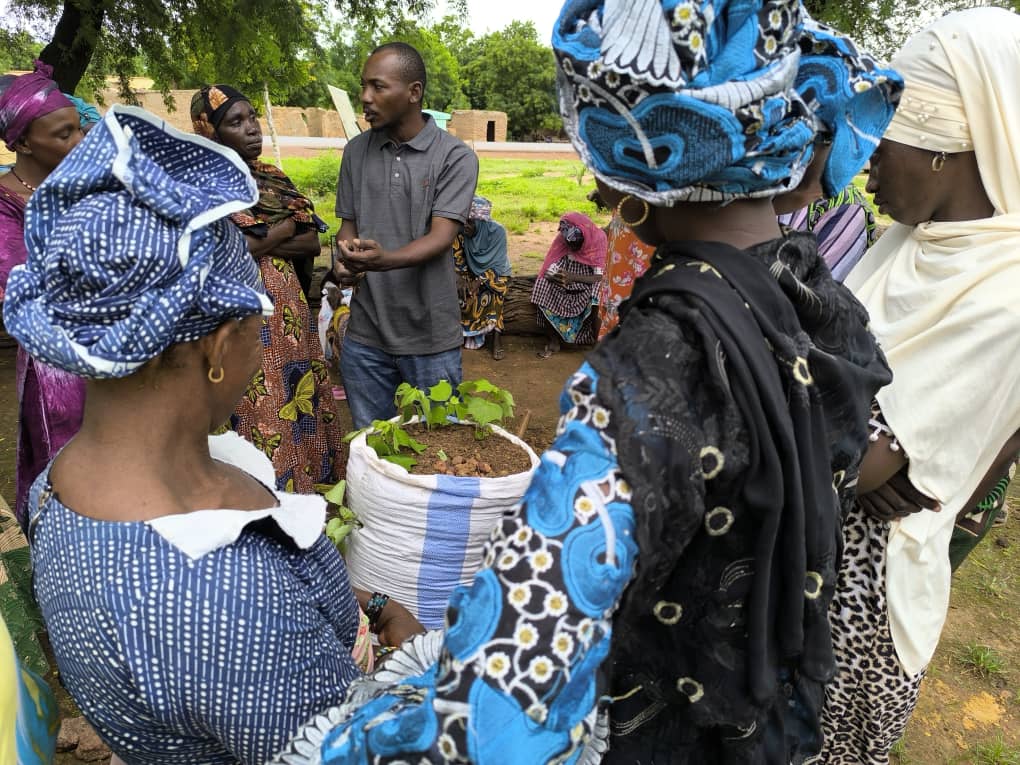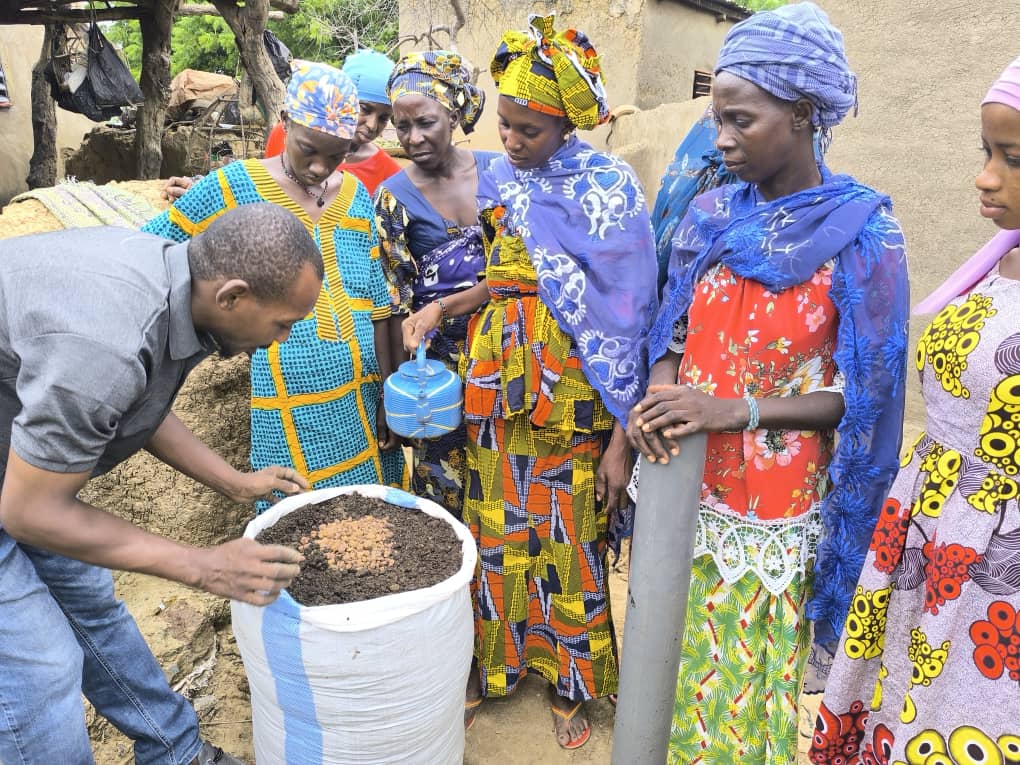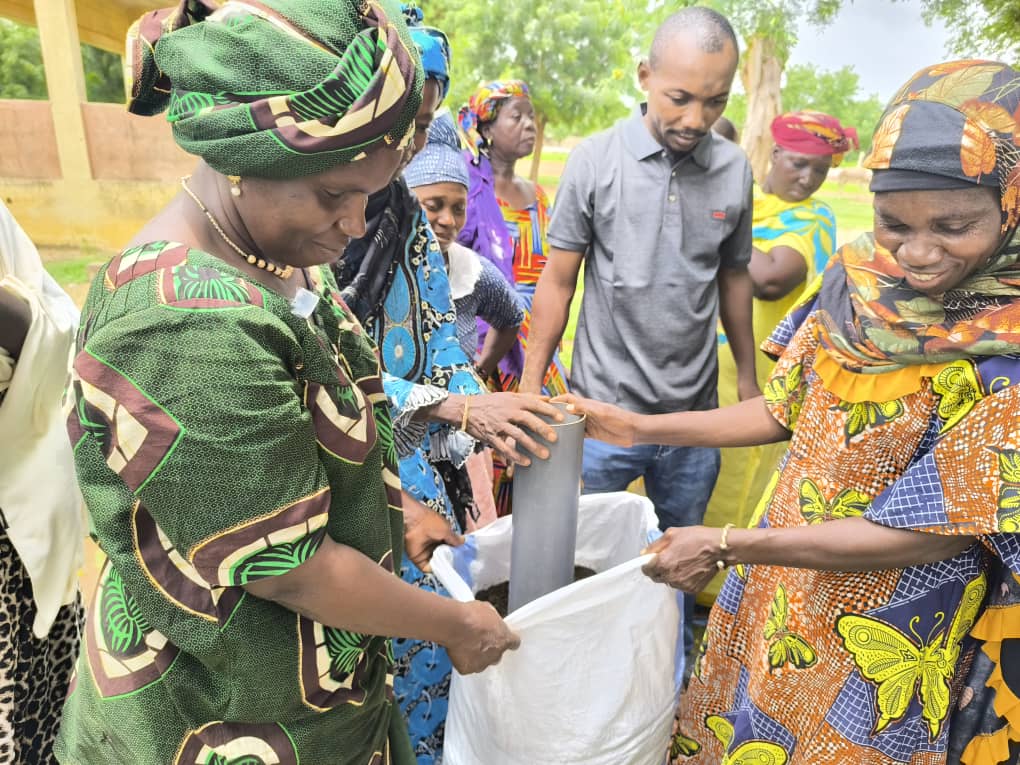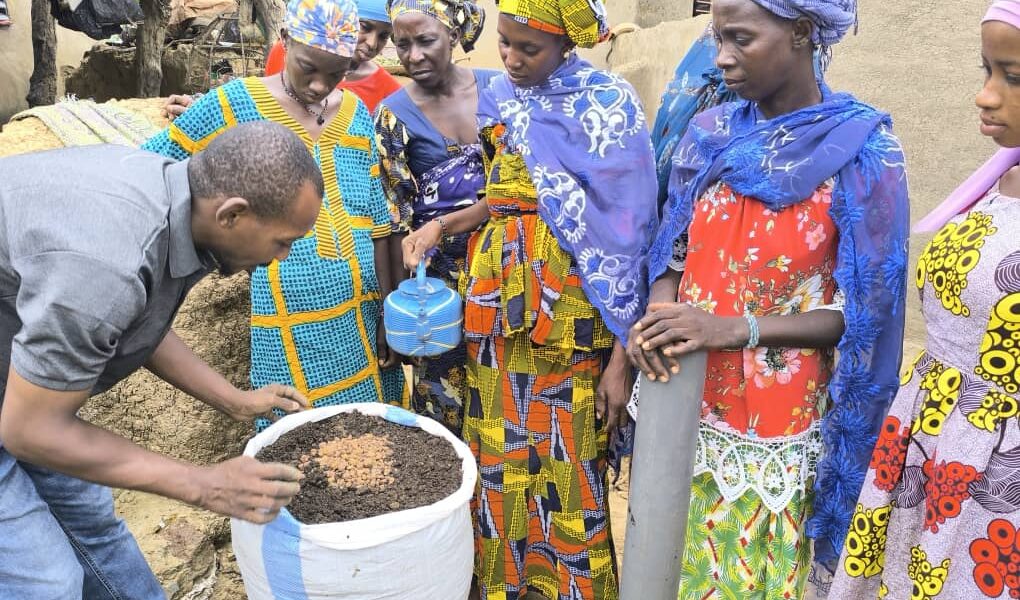Sack gardening: an innovative solution to hunger in Mali
In Mali, sack gardening is one of the latest innovative solutions developed by Ayuda en Acción and Welthungerhilfe to fight food insecurity, which affects mainly women in the country. Find out how this sustainable and simple farming technique is improving the nutrition of families in highly vulnerable contexts.
Food insecurity in Mali
With a serious level of hunger, Mali ranks 96th out of 127 countries in the Global Hunger Index 2024, the annual world hunger report produced by Welthungerhilfe and Concern Worldwide and translated into Spanish by Ayuda en Acción.
The country’s overlapping crises are making access to food more challenging for the most vulnerable households, who are seeing their purchasing power decline as prices rise. One coping strategy is often to limit the quantity and quality of meals, especially vegetables, which prevents them from eating a healthy and balanced diet.
Climate change is exacerbating this problem. Prolonged drought, soil degradation, erratic rainfall and extreme temperatures are disrupting agricultural cycles and reducing yields. This is damaging traditional agricultural systems already damaged by inefficient management and overexploitation of natural resources.
Hunger has a female face
Women play a key role in agriculture and household food security, especially in rural communities in Mali. As the main managers of home gardens, they are often responsible for food production, processing and preparation. Their direct involvement in these activities gives them a central role in the fight against malnutrition and in improving food diversity.
However, women in vulnerable situations, particularly internally displaced women, are often deprived of access to land due to social, economic and legal constraints. This restriction prevents them from carrying out agricultural activities essential to meet their food needs and those of their families.

The response of Ayuda en Acción and Weltungerhilfe: sack gardening
In response to these challenges, Ayuda en Acción is training women in Ségou in sack gardening. This method makes it possible to grow crops directly in bags without depending on the natural conditions of the soil, which is often degraded by desertification or erosion. It does not require a lot of space or land to be used, making it a technique applicable in urban contexts, slums, informal IDP camps or densely populated areas.
The joint forces between Ayuda en Acción and Welthungerhilfe (WHH), members of Alliance2015, have been fundamental to the success of this work line. Last summer, a team of Ayuda en Acción workers was trained in Ségou by a WHH specialist responsible for training community organisations in soil-based horticulture.
Thanks to WHH’s methodology and training, the Ayuda en Acción team has already trained 200 displaced and host community women in sack gardening. In 2025, 200 more will participate. They now have a viable technique that allows them to grow the vegetables they struggle to buy, diversify their diet and save on the purchase of vegetables. In addition, displaced women now have an alternative to protect their economy and food security in the face of landlessness.

It is also important to highlight the therapeutic and social cohesion value of this proposal, as the project’s workshops and gardening practices allow for a moment of relaxation and disconnection for its participants, as well as establishing bonds and exchanging cultivation tips and recipes.

This intervention of Ayuda en Acción Sahel is supported by the Andalusian Agency for International Development Cooperation (AACID).


